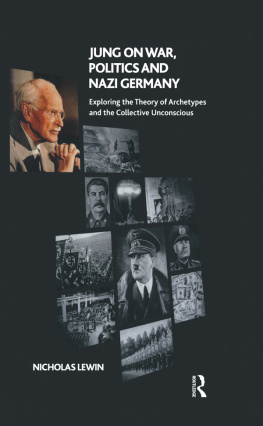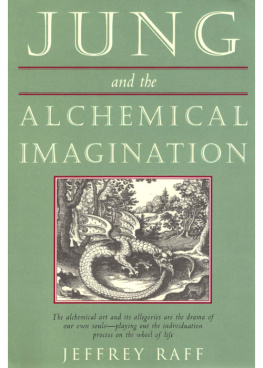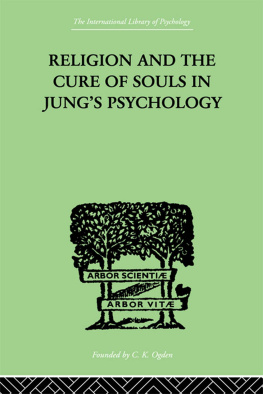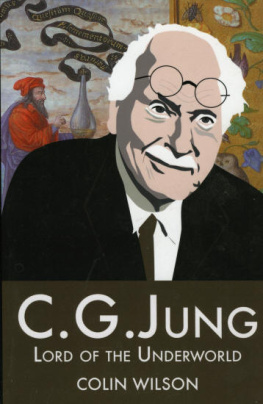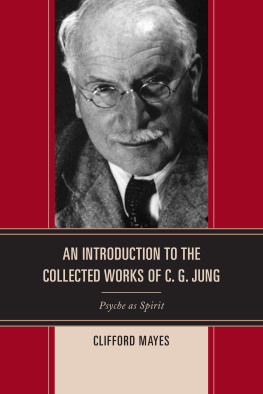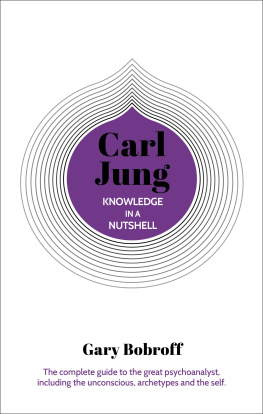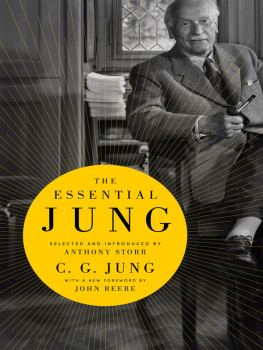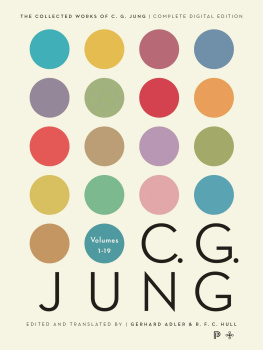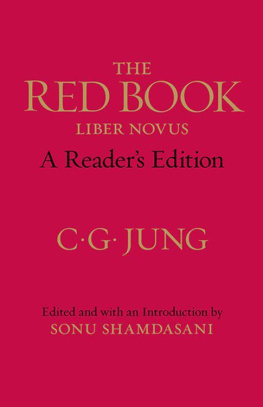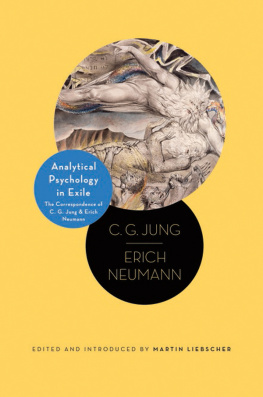First published 2009 by Karnac Books Ltd
Published 2018 by Routledge
2 Park Square, Milton Park, Abingdon, Oxon OX14 4RN
711 Third Avenue, New York, NY 10017, USA
Routledge is an imprint of the Taylor & Francis Group, an informa business
Nicholas Adam Lewin
The moral right of the author has been asserted.
All rights reserved. No part of this book may be reprinted or reproduced or utilised in any form or by any electronic, mechanical, or other means, now known or hereafter invented, including photocopying and recording, or in any information storage or retrieval system, without permission in writing from the publishers.
Notice:
Product or corporate names may be trademarks or registered trademarks, and are used only for identification and explanation without intent to infringe.
Excerpts and diagrams from the following works are reproduced by permission of Taylor & Francis Books UK: The Organism of the Mind by Gustav Heyer 1933 Kegan Paul, Trench, Trubner & Co., Ltd.; The Psychology of C.G. Jung by Jolande Jacobi 1950 Routledge & Kegan Paul; ABC of Jungs Psychology by J. Corrie 1927 Kegan Paul; The Seminars - Volume 3: Analytical Psychology by C.G. Jung, ed. W. McGuire 1990 Routledge; Nietzsches Zarathustra Notes of the Seminar (in two volumes) by C.G. Jung, ed. J. Jarrett 1989 Routledge & Kegan Paul; Visions: Notes of the Seminar Given in 19301934 by C.G. Jung, ed. Claire Douglas 1998 Routledge; Collected Works, vols. 4, 5, 7, 9i, 10, 11, 15, 17, 18 by C.G. Jung, trans. R.F.C. Hull 19531978 Routledge & Kegan Paul. Excerpts from Jung, My Mother and I by J. Cabot Reid 2001 are reproduced by permission of Daimon Verlag, Einsiedeln.
British Library Cataloguing in Publication Data
A C.I.P. is available for this book from the British Library.
ISBN-13: 978-1-85575-457-7 (pbk)
C ONTENTS
Guide
A PPENDIX A
T HE Q UESTION OF A NTI -S EMITISM IN THE Z OFINGIA L ECTURES
I acknowledge Brockways argument, Young Carl Jung (1996), concerning a statement by Jung in The Zofingia Lectures , but must beg to differ. The earliest piece of evidence for possible anti-Semitism in Jung comes in two statements in the second of five Zofingia student lectures Jung gave between 1896 and 1899. Jung was recounting the struggle of the vitalists, whom he supported, and the defeat of the noble Zollner in his struggle against the Judaization of science and society by the stubborn Wundt, the slippery Carl Ludwig, and the spiteful DuBois-Reymond. In this struggle for vitalism, according to Jung: All [was] in vainthe Berlin Jew came out on top (Jung, 1983 [1897], 108), and here, by the Jew Jung meant DuBois-Reymond whom he wrongly believed to be Jewish (Brockway, 1996, p146).
Brockway regards this statement as straightforward evidence of anti-Semitism (and he might be correct that this represented Jungs view at the time), however his distress at this possibility leads him to assume that Jung, in his youth clearly identified the materialists as Jews, and spoke of a Jewish conspiracy as well as of the Jewish corruption of German society (1996, p146). But this alarmist picture is not backed up by any further evidence in the lectures. To take his picture point by point, Jung only identified one person as a Jew, DuBois-Reymond, so he was not presenting a generic anti-Semitic perspective. He made no mention of a conspiracy, nor did he refer to any thing that might imply a Jewish corruption of German society. Against this it is perhaps relevant that DuBois-Reymond was a member of what has been called the school of Helmholtz that advocated materialism and the core role of experimentation and scientific orthodoxy (Cocks, 1997, p7). There is here at least a link of a perception that Jews are materialists. One can also imagine why DuBois-Reymond drew the widely-read Jungs fire, as he had rejected all attempts to combine philosophical and metaphysical elements into the study of the brain as untenable by stating it was Ignoramus et ignoramibus we do not know and we shall never know (Cocks, 1997, p9).
If the statement were indeed anti-Semitic, its lack of emphasis in the paper would suggest one was dealing with a very minor prejudice. In over a hundred pages this was the sole anti-Semitic reference, and it concerns only DuBois-Reymond. Evidently Jung did not like DuBois-Reymond, but of the six references to him, only paragraph 108 contains any references to his being Jewish. This suggests at the very least that the focus of Jungs antipathy was to DuBois-Reymond, not his presumed religion.
How much weight then is one to accord this early piece of juvenilia? Given that this was a student meeting in which one is looking at a very minor part of a speech on an entirely different issue, it seems both biographically and academically problematic to have much confidence in this as evidence of anti-Semitism in Jungs thought, or place any weight on this being a significant part of his ideas or prejudices. Brockway takes the statement to be both unequivocally anti-Semitic and part of an unassailable wider picture. This seems an over-reaction, as perhaps Brockway has also been influenced by the majority of second-generation Jungian writers who uncritically assume that Jung was anti-Semitic.
Writing a book is in many ways a journey of discovery on which one learns both something of a subject and maybe more than one had bargained for about oneself! Many people have helped me along the way and it is a pleasure to remember all those who have contributed.
Firstly I would like to thank my parents for without their support this book would not have been possible. Not only have they provided endless practical assistance but also they have been brave enough to read the manuscript and my father has provided invaluable IT support. For this I also have to thank my late aunt, Gill Rickayzen, for her gift of a scanner and Mr and Mrs Benson who very generously provided my present PC.
At the beginning of these acknowledgements I must express deep gratitude to the late Venerable Myokyo-ni Sama who started my interest in Jungian psychology and over the years laboured to develop my education.
Among the staff at Essex University I gratefully recall how my supervisor, Professor Renos Papadopoulos showed great humour and hospitality and continually strove to broaden my focus and improve my writing style. From the other staff I must also thank Professors Robert Hinshelwood and Joan Raphael-Leff for excellent fortnightly doctoral seminars in my first year and the suggestions provided at the annual supervision board by Professors Karl Figlio, Renos Papadopoulos, Andrew Samuels and the late Ian Craib. I would also like to express my gratitude to the departmental secretary Mrs Marilyn Ward, whose patience, humour and help were invaluable during my time at Essex.
In the course of the work many people have been exceptionally kind in the help that they have given. I cannot give too many thanks to Andrew Burniston, a scholar and teacher of rare quality who was always willing to give advice, help with queries and offer suggestions. I also derived much benefit from his reading groups at the C.G. Jung Analytical Psychology Club. From the Club I must also express my thanks to Ann Colcord for her willingness to let me use the library at inconvenient times and for her unfailing hospitality to our reading group.
Friends and scholars have been very generous with their time and help so it is a great pleasure to thank Andrea Cone-Farran, Dr Gottfried Hauer and Harriet Cookson for reading through the manuscript and offering comments. I would also like to thank Professor Paul Bishop for his encouragement, Dr Sonu Shamdasani for his help and advice and Professor Sir Bernard Crick who was kind enough to make time and shared his thoughts on an early draft. Nor can I forget the late Nicholas Battye for all his help on tracing sources.
Next page
